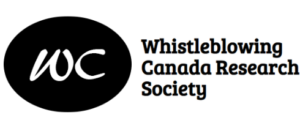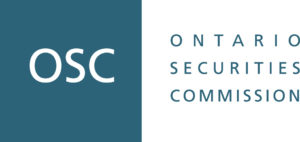Partner Mary Inman joins Shaifali Joshi-Clark of the Ontario Securities Commission’s Whistleblower Office to discuss the OSC’s whistleblower reward program at Whistleblowing Canada Research Society event “The Expansion of Whistleblower Reward Programs in the U.S., Canada and Globally.”
On March 17, 2021, Constantine Cannon whistleblower partner Mary Inman joined Shaifali Joshi-Clark, a senior forensic accountant in the Whistleblower Office of the Ontario Securities Commission (“OSC”), as a co-panellist for a webinar entitled “The Expansion of Whistleblower Reward Programs in the U.S., Canada and Globally,” organised by Whistleblowing Canada Research Society (“WCRS”) and moderated by Canadian labor and human rights advocate David Yazbeck. Mary and David are both members of WCRS’s Advisory Board.
 Mary kicked off the webinar with a discussion of the qui tam provisions of the U.S. False Claims Act, which empower whistleblowers to launch a lawsuit in the government’s name when they have information about fraud against the government or one of its programs. Mary credited the unparalleled success of these whistleblower-initiated lawsuits under the False Claims Act, which have returned over $46 billion to the U.S. Treasury between 1987 and 2020, with inspiring the creation of similar programs to financially reward whistleblowers whose tips lead to successful enforcement actions at the following five U.S. agencies – the Internal Revenue Service (IRS) for tax evasion and tax law violations, the Securities and Exchange Commission (SEC) for violations of securities law and the Foreign Corrupt Practices Act, the Commodity Futures Trading Commission (CFTC) for violations of the Commodity Exchange Act, the Department of Transportation (DOT) for motor vehicle safety defects and the Department of Treasury/FINCEN for money laundering/violations of the U.S. Bank Secrecy Act.
Mary kicked off the webinar with a discussion of the qui tam provisions of the U.S. False Claims Act, which empower whistleblowers to launch a lawsuit in the government’s name when they have information about fraud against the government or one of its programs. Mary credited the unparalleled success of these whistleblower-initiated lawsuits under the False Claims Act, which have returned over $46 billion to the U.S. Treasury between 1987 and 2020, with inspiring the creation of similar programs to financially reward whistleblowers whose tips lead to successful enforcement actions at the following five U.S. agencies – the Internal Revenue Service (IRS) for tax evasion and tax law violations, the Securities and Exchange Commission (SEC) for violations of securities law and the Foreign Corrupt Practices Act, the Commodity Futures Trading Commission (CFTC) for violations of the Commodity Exchange Act, the Department of Transportation (DOT) for motor vehicle safety defects and the Department of Treasury/FINCEN for money laundering/violations of the U.S. Bank Secrecy Act.
As whistleblower reward programs have extended beyond the traditional arena of the False Claims Act and its focus on fraud in government procurement and into the realm of the agency programs where the IRS, SEC, CFTC, DOT and FINCEN reward whistleblowers who provide tips that trigger a successful enforcement action, Mary noted the concept of who can be an eligible whistleblower has also evolved, expanding beyond the archetypal whistleblower insider who works at the target company and sees the wrongdoing first-hand to also include whistleblower outsiders like Harry Markopolos, an investment advisor at a Boston financial services firm who used his accounting expertise to uncover evidence that Bernie Madoff’s wealth management business was a huge Ponzi scheme, and on whom the SEC’s Dodd-Frank whistleblower reward program was modelled. According to Mary, the whistleblower world is now a broach church consisting of insiders, outsiders, competitors, data analysts and an increasing number of international whistleblowers.
In a global economy occupied by multinational companies with international operations, Mary observed that wrongdoing that undermines the U.S. government and its agencies is occurring abroad, making international whistleblowers best placed to detect and expose such wrongdoing. To highlight the importance of international whistleblowers in helping U.S. agencies in rooting out fraud, Mary shared a picture she took of a trade show booth the CFTC’s Office of the Whistleblower set up at an industry trade conference – the International Derivatives Expo – in London in 2019 in which they sought proactively to recruit international whistleblowers and increase awareness of the CFTC’s whistleblower reward program and its availability to whistleblowers located outside the U.S.
 Shaifali Joshi-Clark, a senior forensic accountant in the Ontario Securities Commission’s Office of the Whistleblower, provided a comprehensive overview of the OSC’s whistleblower reward program, which has awarded over $8.6 million to multiple whistleblowers in the four years since its inception. Ms. Joshi-Clark noted she worked at the OSC, the regulatory agency responsible for overseeing the capital markets in Ontario, throughout the creation and now implementation of its program for rewarding successful whistleblower tips on violations of Ontario’s securities laws. Like the SEC whistleblower reward program on which it was modelled, the OSC program encourages, but does not require, whistleblowers to use companies’ reporting mechanisms to report internally before bringing the information to the OSC. In so doing, the OSC program rules treat the whistleblowers’ decision to use internal reporting channels among the plus factors it considers to increase the percentage of the fine the OSC awards to whistleblowers.
Shaifali Joshi-Clark, a senior forensic accountant in the Ontario Securities Commission’s Office of the Whistleblower, provided a comprehensive overview of the OSC’s whistleblower reward program, which has awarded over $8.6 million to multiple whistleblowers in the four years since its inception. Ms. Joshi-Clark noted she worked at the OSC, the regulatory agency responsible for overseeing the capital markets in Ontario, throughout the creation and now implementation of its program for rewarding successful whistleblower tips on violations of Ontario’s securities laws. Like the SEC whistleblower reward program on which it was modelled, the OSC program encourages, but does not require, whistleblowers to use companies’ reporting mechanisms to report internally before bringing the information to the OSC. In so doing, the OSC program rules treat the whistleblowers’ decision to use internal reporting channels among the plus factors it considers to increase the percentage of the fine the OSC awards to whistleblowers.
In addition to the whistleblower reward mechanism, Shaifali described the other robust whistleblower protections the OSC reward program affords. Whistleblowers have a right to bring a civil cause of action against their employers in Superior Court for reprisals taken against them for whistleblowing. The law reverses the traditional burden of proof in employment matters, putting the onus on the employer to satisfy the court that it did not take the alleged reprisal against a whistleblower because of the employee’s whistleblowing. It is also a breach of the Ontario Securities Act for companies to include in their agreements with employees provisions that have the effect of silencing or restricting a whistleblower from whistleblowing or preventing a whistleblower’s cooperation with a regulator or law enforcement.
In a landmark 2020 case In the Matter of Coinsquare Ltd. et al., Shaifali noted the OSC reached a settlement of close to $2 million with Coinsquare Ltd. and other companies for breaches of the anti-reprisal provisions of the Ontario Securities Act. In the settlement, Coinsquare admitted to taking reprisals against internal whistleblowers who reported concerns of inflated trading volumes by its senior management. In a strong signal to regulated entities, the OSC stated “[t]he individual respondents are being held accountable for their specific misconduct and the market is on notice that the Commission will not tolerate deceptive conduct, reprisals against whistleblowers or failures to maintain compliance systems.”
After questions from panel moderator David Yazbeck, the discussion closed with the panellists’ final remarks. Mary asked attendees to challenge their possible negative perceptions of whistleblowers, citing empirical research supporting the notion that whistleblowers’ reports help companies avoid government investigations and lawsuits and are good for a company’s bottom line. Shaifali underscored how seriously the OSC takes its commitment to protecting a whistleblower’s identity, finding creative ways to obtain the information provided by the whistleblower from third parties so it cannot be traced to the whistleblower; the OSC is also careful not to share the information received from the whistleblower with other regulatory agencies without first getting the whistleblower’s consent.
A recording of the session can be found below:
Read More
- Securities Fraud
- OSC Whistleblower Program
- International Whistleblowers
- Canada Makes First Securities Fraud Whistleblower Award
- Subscribe to our YouTube Channel
- Watch Our Other Constantine Cannon Attorney Interviews
Tagged in: CFTC Whistleblower Reward Program, FCA Federal, International Whistleblowers, SEC Whistleblower Reward Program, Securities Fraud, Whistleblower Rewards,